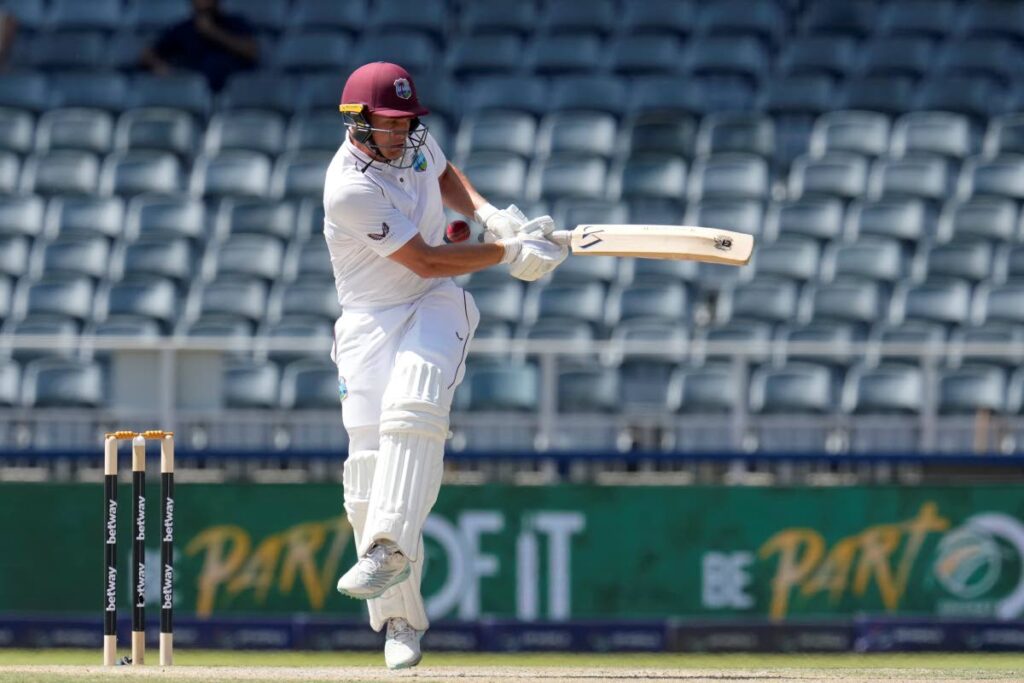West Indies’ future could be bright

I must congratulate West Indies “A” team skipper Joshua Da Silva on his wonderful performances in Bangladesh. He led his team to a series victory by a convincing one-nil margin from three “Tests” over Bangladesh’s “A” team.
I say convincing because at no time did they look like they were going to lose. There were the inevitable snags along the way that were easily cast aside as a matter of course.
Beating any team on their home soil, where they’re accustomed to playing, demands a competent effort, and Da Silva showed the type of leadership potential to guide them there. While I’m at it, kudos must also be extended to the coach, Rayon Griffith, who fashioned his players into a confident unit to make the opposition struggle and with the purposefulness to fight back from negative situations.
Actually, the cricket played throughout was quite intelligent and gave the West Indians the self-confidence to capture the series.
Apart from his fine captaincy on the field, Da Silva was consistent with the bat, and a few times stepped up when he was called upon to rescue the team and build the score. This helped create winning positions from which one can gain a superior advantage to claim victory.
I don’t know why he did not take up his usual position behind the stumps in the third match of the series. There was no report of any injuries. He’s the number-one stumper in the West Indies and it is his duty to keep wicket in any first-class game he plays.
I hope the reasoning didn’t mean that he was tired, or giving Tevin Imlach, the deputy keeper on the tour, a chance to play a game; if so, that would be wrong for a couple of logical reasons.
Firstly, this is first-class cricket, which is one level below Test cricket. It is an important game, and the best team must take the field. Also, the best bowlers and batsmen should be selected. It is not a practice game.
Secondly, it is not fair to the team for the number-one wicketkeeper to stand down to give someone else a chance. It’s a mini-Test and all players ought to be aware of that; thus, they have to earn their pick and not just be given an opportunity. That’s not how international cricketers develop.

Da Silva had been playing quite a lot of cricket lately, and he might have needed a rest. However, I find our trainers are quite often too willing to give players rests, which affects them negatively: they lose their rhythm and their performance suffers. They must play in their position at every opportunity presented to them and learn to pace themselves. It sharpens the movements, builds confidence and increases their cricket intelligence.
Nonetheless, Imlach was fine behind the stumps, which proved that the wicketkeeping in the WI is in safe hands. Judging by this “A” team’s efficiency, the future could be bright, if only WI can preserve their players’ status. Given their ability and exposure, they could be lost one by one to the worldwide franchises,their cricket ability will slide downhill, and then, before they know it, it collapses.
WI’s job is to continue working on the younger players of talent, to replace those lost. In order to do that, WI will have to find funding to pay their players higher salaries. It seems that they could find money when they want, for instance, to employ a batch of unnecessary coaches for their international red-ball and white-ball sides. That’s another issue that has to be tackled.
Who is advising Cricket West Indies as to what is required of their cricketers to improve their rankings? I would hope they are cricket-knowledgeable with the requisite values. It certainly isn’t a matter of expanding the number of coaches. With too many coaches, players unintentionally leave their preparation on the shoulders of the coaches, hence removing the responsibility of preparing themselves for their tournaments.
One vital and important factor I learnt in my playing days with the WI at home and on tour, then in my three years of playing first-class cricket with Glamorgan County Cricket Club, plus 12 years with TT and decades of amateur club cricket at home, is that one’s best coach is himself; the coach’s relevance then is to guide and motivate.
Four coaches in a dressing room are chaotic. The old adage is apt – too many cooks spoil the broth.


Comments
"West Indies’ future could be bright"